Od svého vzniku na počátku 20. století se rentgenová kontrolní technologie stala jednou z klíčových technologií v oblasti nedestruktivního testování. Jejím základním principem je využití vysoké pronikavé síly rentgenového záření a rozdílů v jeho absorpci různými materiály k vytvoření dvourozměrných obrazů vnitřní struktury objektů. V této kapitole se budeme zabývat tím, zda lze rentgenovými kontrolními přístroji dosáhnout nedestruktivního testování, porovnáme je s průmyslovou CT technologií a představíme zkušenosti společnosti Nectec v této oblasti. Uvedeme celkem pět částí prezentace týkající se společnosti Nectec‘s rentgenovou kontrolní technologií v této pasáži.
Nejprve bychom chtěli probrat některé základy a aplikace rentgenových kontrolních zařízení obecně. Technologie rentgenové kontroly vznikla na počátku 20. století a nyní se vyvinula v jednu z klíčových technologií v oblasti nedestruktivního testování. Jejím základním principem je využití vysoké pronikavé síly rentgenového záření a rozdílů v absorpční schopnosti různých materiálů k vytvoření dvourozměrných obrazů vnitřní struktury objektů. Právě tato technologie je však široce využívána nejen v lékařství pro diagnostiku a léčbu, ale hraje důležitou roli i v průmyslové výrobě. Základní logika rentgenové kontrolní technologie je naprosto fascinující. Rentgenové záření je elektromagnetické vlnění s extrémně krátkou vlnovou délkou, které dokáže proniknout většinou materiálů. Jejich pronikavý výkon je nepřímo úměrný hustotě a tloušťce materiálu. Právě tato vlastnost umožňuje rentgenovým kontrolním přístrojům odhalit neviditelné vady materiálů, jako jsou kovy, plasty a keramika, například praskliny, bubliny nebo cizí předměty.

Podle výzkumného ústavu dokáže rentgenová kontrolní technologie identifikovat vady o průměru pouhých 0,1 mm, což dokazuje její vysokou přesnost a spolehlivost. Nejen to, rentgenová kontrolní technologie prokázala svou rozmanitost v mnoha oblastech průmyslu. Mezi běžné aplikace rentgenové kontroly patří: Za prvé, kontrola elektronických součástek: Za druhé: výroba automobilů, kde se rentgenová kontrola používá ke zjištění integrity součástí motoru a konstrukce karoserie, čímž se předchází mechanickým poruchám způsobeným vnitřními vadami; za třetí: letecký průmysl, kde se rentgenová kontrola používá při výrobě letadel a kosmických lodí ke zjištění únavy materiálu a konstrukčních vad, čímž se zajišťuje bezpečnost letu. Řada rentgenových kontrolních zařízení NX společnosti Nectec se díky své přesnosti a účinnosti stala preferovanou volbou pro mnoho průmyslových odvětví. Dále bychom rádi zdůraznili některé technologické výhody společnosti Nectec. Vedoucí postavení společnosti Nectec v oblasti rentgenové kontroly je dáno její neustálou technologickou inovací a filozofií služeb zaměřených na zákazníka. Náš výzkumný a vývojový tým spolupracuje s několika renomovanými čínskými univerzitami na špičkovém výzkumu a vývoji aplikací. Ve studii o automatizaci rentgenové kontroly zvýšil systém automatického rozpoznávání vad vyvinutý týmem společnosti Nectec efektivitu kontroly o 40%, což výrazně snížilo míru manuálních zásahů a chybných rozhodnutí. Kromě toho společnost Nectec klade u svých zařízení důraz na modulární konstrukci, aby vyhověla individuálním potřebám různých zákazníků. Nabídkou flexibilních řešení si společnost udržuje vedoucí postavení na vysoce konkurenčním trhu.

Dále bychom rádi poskytli zpětnou vazbu z trhu a uživatelské recenze společnosti Nectec.‘s rentgenovými kontrolními přístroji. Zákazníci společnosti Nectec jsou rozmístěni po celém světě a pokrývají odvětví, jako je spotřební elektronika, automobilový a letecký průmysl. Na základě zpětné vazby od zákazníků získala rentgenová kontrolní zařízení společnosti Nectec širokou chválu za výjimečnou kvalitu obrazu a spolehlivý výkon. V nedávném průzkumu spokojenosti zákazníků více než 85% zákazníků uvedlo, že by doporučilo produkty společnosti Nectec dalším zákazníkům. Z výše uvedené analýzy je patrný význam rentgenové kontrolní technologie v moderním průmyslu a mimořádný přínos společnosti Nectec k rozvoji jejího použití. V budoucnu, s dalším rozvojem technologií a rozšiřováním oblastí použití, budou rentgenové kontrolní stroje společnosti Nectec poskytovat efektivní a spolehlivá řešení nedestruktivního testování pro ještě širší škálu průmyslových odvětví.
Za druhé, chceme se zaměřit na některé výhody a problémy průmyslového CT. Průmyslové CT, známé také jako technologie počítačové tomografie, představuje obrovský skok vpřed v oblasti nedestruktivního testování. Na rozdíl od tradičního rentgenového testování dokáže průmyslová CT poskytnout trojrozměrný obraz testovaného objektu a odhalit tak složité detaily jeho vnitřní struktury. Díky této schopnosti je průmyslové CT nepostradatelným nástrojem v široké škále průmyslových odvětví a průmyslové CT zkušební zařízení NX-CT160 společnosti Nectec je také špičkou v tomto oboru. Než se zmíníme o jeho výzvách v dnešní době‘rychle se rozvíjejícím světě rentgenové kontroly, chceme nejprve poskytnout několik informací o jejích výhodách.
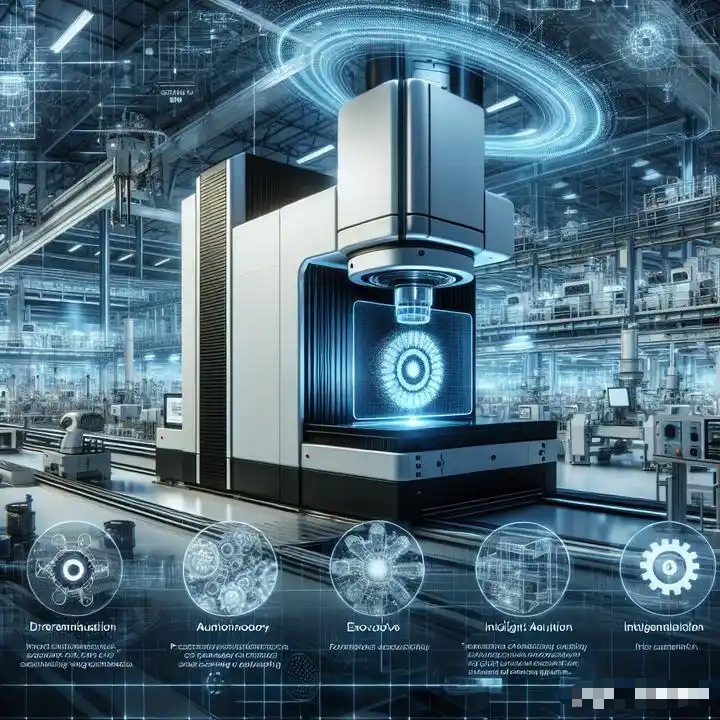
První z nich je vysoké rozlišení a přesnost: průmyslové CT dosahuje rozlišení na úrovni mikronů, takže je vynikající pro detekci malých defektů a složitých geometrií. Podle studie ve vědeckém časopise dokáže průmyslové CT identifikovat vady o velikosti pouhého 1 mikronu, což je důležité zejména v leteckém průmyslu a při výrobě lékařských přístrojů; dále je to komplexní 3D zobrazování: díky otáčení zdroje rentgenového záření a detektoru může průmyslové CT shromažďovat data z více úhlů a rekonstruovat kompletní 3D model. To umožňuje nejen odhalit povrchové vady, ale také provést hloubkovou analýzu strukturální integrity vnitřku materiálu. Společnost Nectec je průkopníkem ve vývoji vlastního vysoce přesného zařízení pro průmyslovou CT kontrolu, což zajišťuje, že služby průmyslového CT, které poskytuje, splňují tuto poptávku; A konečně je zde testování materiálové rozmanitosti: průmyslové CT dokáže detekovat širokou škálu kombinací materiálů, od kovů přes kompozitní materiály až po biomateriály, což z něj činí mimořádně univerzální zařízení. To hraje klíčovou roli při výrobě a kontrole kvality vícemateriálových součástí. Když už přecházíme k výzvám, jsou tu také asi tři z nich. V první řadě jsou to vysoké náklady na vybavení a provoz: průmyslové CT zařízení je drahé a jeho obsluha vyžaduje specializované dovednosti, což může pro některé zákazníky z řad malých a středních podniků představovat překážku. Společnost Nectec pomáhá svým podnikovým zákazníkům optimalizovat jejich kontrolní procesy a snížit celkové náklady tím, že poskytuje komplexní služby integrace inline dovybavení;

Dále je tu složitost zpracování dat: průmyslové CT generuje obrovské množství dat a jejich zpracování a analýza vyžaduje silný výpočetní výkon a specializovaný software. Výzkum autoritativních akademických institucí ukázal, že s podporou vysoce výkonné výpočetní techniky a pokročilých algoritmů lze výrazně zlepšit dobu zpracování dat a jejich přesnost. Společnost Nectec poskytuje v této oblasti také softwarová řešení na míru, která zlepšují efektivitu analýzy dat, ale přesto doporučujeme používat cenově dostupnější a efektivnější rentgenové kontrolní přístroje; V neposlední řadě je zde otázka složitosti provozu a školení personálu: vzhledem ke složitosti průmyslové CT technologie musí obsluha absolvovat odborné školení, aby mohla efektivně provádět kontroly a analýzu dat. Společnost Nectec má tým přibližně 20 technických inženýrů výzkumu a vývoje, kteří vynaložili značné úsilí, pokud jde o technické školení, aby zajistili, že náš tým má nejpokročilejší technické znalosti a provozní dovednosti.
Zatřetí se chceme zabývat strategií porovnávání a výběru technologií. V oblasti bezeztrátového testování je výběr správné technologie zásadní. Díky komplexní analýze přesnosti testování, použitelnosti, nákladů a efektivity mohou naši zákazníci učinit nejlepší rozhodnutí. Tyto znalosti mají přibližně čtyři klíčové body. První a nejdůležitější je přesnost detekce a kvalita zobrazení: Rentgenové kontrolní přístroje dokáží rychle generovat dvourozměrné snímky, což je ideální pro aplikace vyžadující efektivní kontrolu. Podle studie publikované v předním vědeckém časopise se rozlišení rentgenových kontrolních strojů obvykle pohybuje v rozmezí 50 až 100 mikronů, takže jsou vhodné pro detekci větších defektů a jednoduchých struktur.
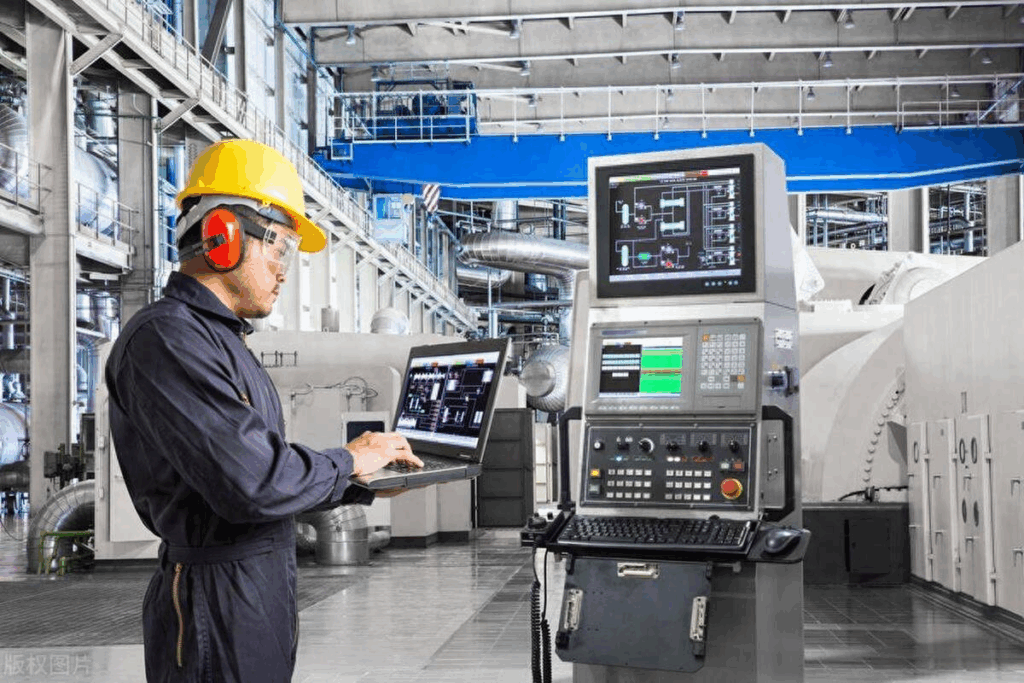
Další klíčovou výhodou je, že průmyslové CT je proslulé svými schopnostmi vysoce přesného trojrozměrného zobrazování. Nedávný výzkum také naznačuje, že průmyslové CT může dosáhnout rozlišení na úrovni mikrometrů, a dokonce i nanometrů (méně než 1 mikrometr), což mu dává bezkonkurenční výhody při detekci složitých vnitřních struktur. Nejmodernější zařízení vyvinuté společností Nectec, jako je například NX-CT160, umožňuje přesnou trojrozměrnou rekonstrukci, díky čemuž je vhodné pro analýzu malých defektů a složitých geometrických struktur; další je rozsah použití a průmyslové aplikace: Rentgenové kontrolní přístroje se široce používají při výrobě a kontrole spotřební elektroniky a lékařských přístrojů a jsou zvláště účinné při rychlé kontrole desek plošných spojů a pájecích spojů. Podle údajů společnosti pro průzkum trhu představuje rentgenová kontrola více než 40% celosvětového trhu s kontrolou elektronických součástek. Naproti tomu průmyslové CT je vhodné pro kontrolu vysoce hodnotných a složitých součástí, jako jsou kritické díly v letecké a automobilové výrobě; Třetím bodem je nákladová efektivita a provozní účinnost: Z hlediska nákladové efektivity mají rentgenové kontrolní stroje nízké náklady na vybavení a provoz, takže jsou vhodné pro rozsáhlé rutinní kontrolní úkoly. Snadno se obsluhují a integrují, což výrazně snižuje náklady na kontrolu. Průmyslové CT sice vyžaduje vyšší počáteční investice do zařízení, ale díky svým výhodám v oblasti přesné kontroly a kontroly výrobků s vysokou přidanou hodnotou je z dlouhodobého hlediska vysoce nákladově efektivní. Společnost Nectec snižuje provozní náklady na průmyslové CT díky inovativní konstrukci zařízení a optimalizovaným provozním procesům, což našim zákazníkům umožňuje dosáhnout efektivní kontroly a zároveň kontrolovat rozpočty;
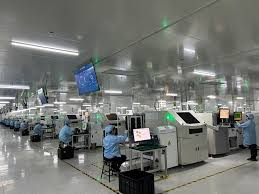
A nakonec vysoce citlivá zákaznická řešení a technická podpora: Společnost Nectec nabízí celou řadu testovacích řešení, která zákazníkům pomáhají při výběru nejvhodnějšího řešení pro různé scénáře použití. Společnost poskytuje individuální technickou podporu a poprodejní servis přizpůsobený specifickým potřebám různých průmyslových odvětví. Tento flexibilní model služeb zajišťuje, že zákazníci mohou udržovat vysoké standardy testování a zároveň maximalizovat návratnost svých investic. Na základě výše uvedeného srovnání by podniky měly při výběru technologie nedestruktivního testování plně zvážit své požadavky na testování, rozpočet a budoucí směr vývoje. Díky svému rozsáhlému portfoliu produktů a bohatým zkušenostem v oboru může společnost Nectec poskytnout zákazníkům optimální testovací řešení a pomoci tak podnikům dosáhnout vysoce kvalitního vývoje.
Za čtvrté chceme probrat některé praktické případy použití a dopad na průmysl. V oblasti bezeztrátového testování existuje nespočet příkladů použití rentgenových kontrolních strojů a průmyslové CT technologie. Úspěšné použití těchto dvou technologií v různých oblastech nejen zlepšilo kvalitu výrobků, ale také podpořilo celkový pokrok průmyslových technologií. Přínos společnosti Nectec v této oblasti je obzvláště pozoruhodný. Následující případy ukazují naše úspěšné postupy v různých oblastech. Nejprve případová studie společnosti Nectec týkající se kontroly kvality ve spotřební elektronice: V odvětví spotřební elektroniky klade lehká a složitá povaha výrobků vyšší nároky na kontrolní technologie. Společnost Nectec poskytla známému domácímu výrobci mobilních telefonů vysoce přesný rentgenový kontrolní stroj NX-EF pro kontrolu kvality pájecích spojů na vnitřních deskách plošných spojů. Prostřednictvím dvourozměrných snímků s vysokým rozlišením dokáže zařízení rychle identifikovat vady pájecích spojů na výrobní lince.
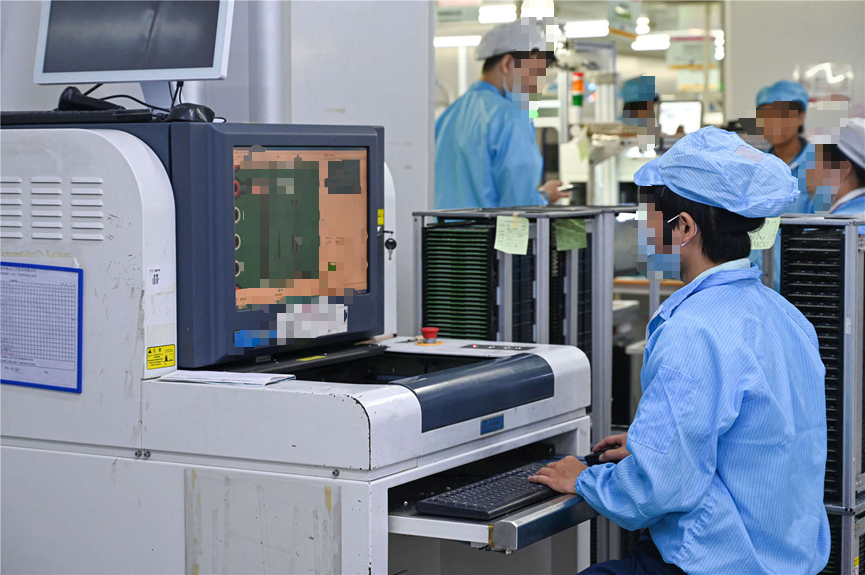
Podle zprávy známé výzkumné instituce se zavedením této kontrolní metody snížila míra přepracování výrobků o více než 30%; druhou oblastí je zajištění bezpečnosti v automobilovém průmyslu: Průmyslová technologie CT se široce používá v automobilovém průmyslu k odhalování vnitřních vad součástí motoru a konstrukčních svarů. Průmyslové CT zařízení dodané společností Nectec pomohlo známému domácímu výrobci automobilů odhalit mikrotrhliny v blocích válců motoru; Třetí oblastí je testování spolehlivosti zdravotnických prostředků: U lékařských přístrojů je integrita a přesnost vnitřních struktur nesmírně důležitá. Společnost Nectec poskytla známému tuzemskému výrobci zdravotnických prostředků řešení pro rentgenovou kontrolu, které umožňuje komplexní nedestruktivní testování složitých implantabilních prostředků ve fázi výroby. Podle statistik autoritativních institucí pomohlo toto řešení zákazníkovi snížit míru selhání výrobků o 40% a zvýšit spokojenost na trhu; Čtvrtou oblastí je testování baterií v odvětví nové energie: S rozvojem nových energetických vozidel se bezpečnost baterií dostala do centra pozornosti. Průmyslové CT zařízení společnosti Nectec hraje důležitou roli při testování vnitřní strukturální integrity energetických baterií. Prostřednictvím přesného 3D zobrazování dokáže zařízení účinně odhalit mikrotrhliny a vady uvnitř baterie a zajistit tak její bezpečnost a stabilitu výkonu. Naši zákazníci uvádějí, že po použití testovací technologie společnosti Nectec se výrazně zlepšila životnost baterií.
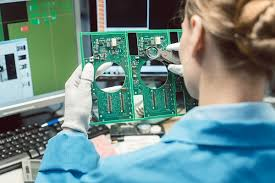
Za páté a poslední bychom chtěli poskytnout několik poznatků o budoucích trendech a inovacích v Nectecu. Prvním z nich je vysoce přesná detekce na úrovni mikronů: Budoucí technologie nedestruktivního testování se bude stále více zaměřovat na požadavky vysoké přesnosti a detekce na úrovni mikronů. Podle výzkumu autoritativního časopisu musí mít detekční zařízení s popularizací nanomateriálů a mikroelektronických technologií vyšší přesnost a rozlišení. Společnost Nectec vyvíjí novou generaci rentgenových zařízení, která mohou dosáhnout přesnosti detekce na submikronové úrovni. Toto zařízení se zpočátku uplatňovalo v oblasti spotřební elektroniky a špičkové výroby a poskytuje důležitou podporu pro kontrolu kvality našich zákazníků; druhou oblastí je inteligence a automatizace: Umělá inteligence a technologie strojového učení pronikají do oblasti nedestruktivního testování. Automatizované testovací systémy dokáží pomocí algoritmů identifikovat vady, čímž zvyšují efektivitu a přesnost testování. Podle článku mezinárodní inženýrské organizace může automatizované testování snížit chybovost lidského faktoru a zlepšit celkovou efektivitu výrobních linek. Společnost Nectec vyvíjí testovací software na bázi umělé inteligence, který dokáže automaticky analyzovat data z testování, hlásit potenciální problémy v reálném čase a bezproblémově se integrovat s ostatními zařízeními na výrobní lince; třetí je vyšší rychlost kontroly a zpětná vazba v reálném čase: V kontextu Průmyslu 4.0 vyžadují výrobní linky rychlejší kontrolu a zpětnou vazbu dat v reálném čase. Projekt Inline retrofit společnosti Nectec integruje do výrobních linek efektivní rentgenové a CT kontrolní zařízení, které umožňuje kontrolu v reálném čase a zpětnou vazbu dat, čímž zefektivňuje výrobní procesy. Zpětná vazba od našich zákazníků ukazuje, že efektivita výroby se zvýšila přibližně o 18% a přesnost kontroly se zvýšila o 16%;
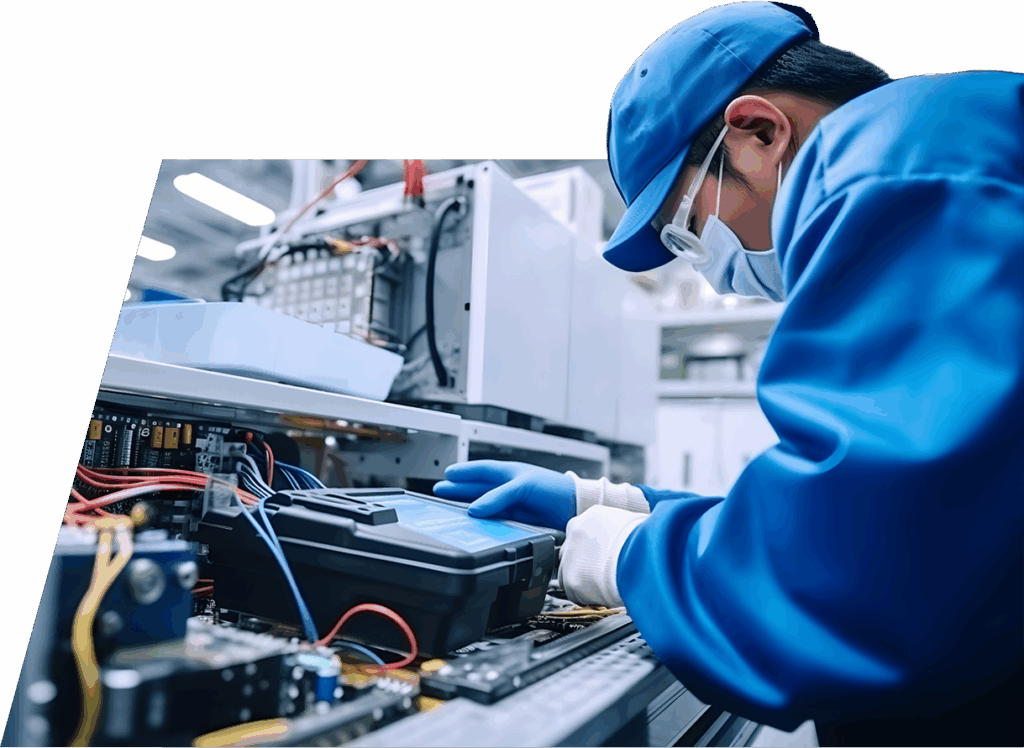
Čtvrtým důvodem je ochrana životního prostředí a nízké náklady: Vzhledem k tomu, že se zpřísňují předpisy na ochranu životního prostředí a společnosti kladou větší důraz na kontrolu nákladů, ochrana životního prostředí a snižování nákladů na testování se staly důležitými trendy. Společnost Nectec se zavázala vyvíjet testovací zařízení s nízkou spotřebou energie a používat recyklovatelné materiály k výrobě krytů zařízení, čímž snižuje dopad na životní prostředí. Kromě toho naše konstrukce zařízení zohledňuje modularitu a snadnou údržbu, aby se snížily provozní náklady; za páté a nejdůležitější je, že společnost Nectec dosáhla globalizace a lokalizace služeb: S rozšířením globálního trhu společnost Nectec zřídila několik servisních středisek po celém světě a aktivně spolupracuje s místními společnostmi, aby zajistila, že naši zákazníci mohou získat rychlou technickou podporu a servisní služby, což dále upevňuje konkurenceschopnost společnosti Nectec na mezinárodním trhu.
Závěrem lze říci, že společnost Nectec je díky svým inovacím a prozíravým strategiím v oblasti bezeztrátového testování vedoucí společností v oboru. Díky neustálému technologickému výzkumu a vývoji a rozšiřování trhu poskytujeme globálnímu výrobnímu průmyslu efektivnější, spolehlivější a ekologičtější řešení testování.





